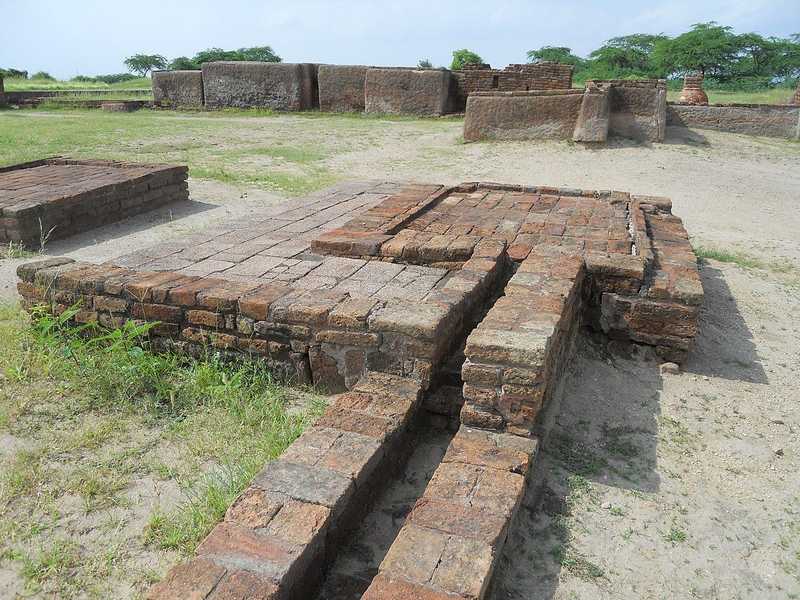Lothal, A 5000 year old City of Gujarat.

Lothal is an ancient city located in the modern state of Gujarat in India. It was a major city of the Harappan civilization, also known as the Indus Valley civilization, which flourished between 2500 and 1900 BCE. The city of Lothal was an important center of trade and commerce, and it is believed to have been a major hub for the production and trade of precious metals, such as copper and bronze.
In the early 20th century, the city of Lothal was discovered by archaeologists from the Archaeological Survey of India (ASI), who conducted excavations at the site between 1955 and 1960. The excavations revealed a well-planned city with a sophisticated drainage system, as well as evidence of a thriving trade in various goods. The city also had a large dockyard, which indicates that it played a key role in maritime trade.
Despite its importance as a center of trade and commerce, the city of Lothal eventually declined and was abandoned. It is not clear exactly why this happened, but it is likely that changes in trade routes and the decline of the Harappan civilization as a whole played a role.
The ASI has continued to study the site of Lothal, and in recent years they have uncovered new evidence of the city's history. For example, in 2014, they discovered a 2000-year-old wooden plank at the site, which is the oldest wooden object ever found in India. This discovery provides valuable insights into the technology and crafts of the ancient people who lived in Lothal.
A huge dockyard, one of the most important things found at Lothal, indicates that the city played a considerable role in marine trade. A number of docks, slipways, and warehouses can be seen at the dockyard, which were used to load and unload cargo from ships. The dockyard is regarded as being among the first and most sophisticated of its sort in the whole world.
At Lothal, ceramics, beads, seals, and implements made of copper and bronze were also found . These artefacts give us important information about the skills and technology of the ancient Lothal inhabitants.
In conclusion, ancient India's city of Lothal served as a significant hub for trade and commerce. It featured a complex drainage system, a sizable dockyard, and was a significant Centre for the manufacturing and trading of precious metals. Several intriguing items, including a sizable dockyard, pottery, beads, seals, and implements made of copper and bronze, have been uncovered during the Lothal excavations. The history and culture of the historic city of Lothal are vital insights that may be gained from these items. The reasons why the city finally decayed and was abandoned, despite its prosperity, remain unclear. The ASI is still researching the location, and recent excavations have turned up fresh proof of the city's past.
How to reach Lothal?
Lothal is not a contemporary city, but rather an archaeological site. In Lothal, it is impossible to find hotels or other types of lodging. Ahmedabad, which is 50 kilometres away from Lothal, is the closest location where you may get lodging. In Ahmedabad, there are numerous hotels, guest homes, and other lodging alternatives, so you should be able to find something that fits your requirements and price range. It is preferable to reserve your lodging in advance, especially if you want to go during a period of high tourism.
Call for accommodation in Ahmedabad or Rajkot- 7016528702/9869779922
-Ashok Chavda
